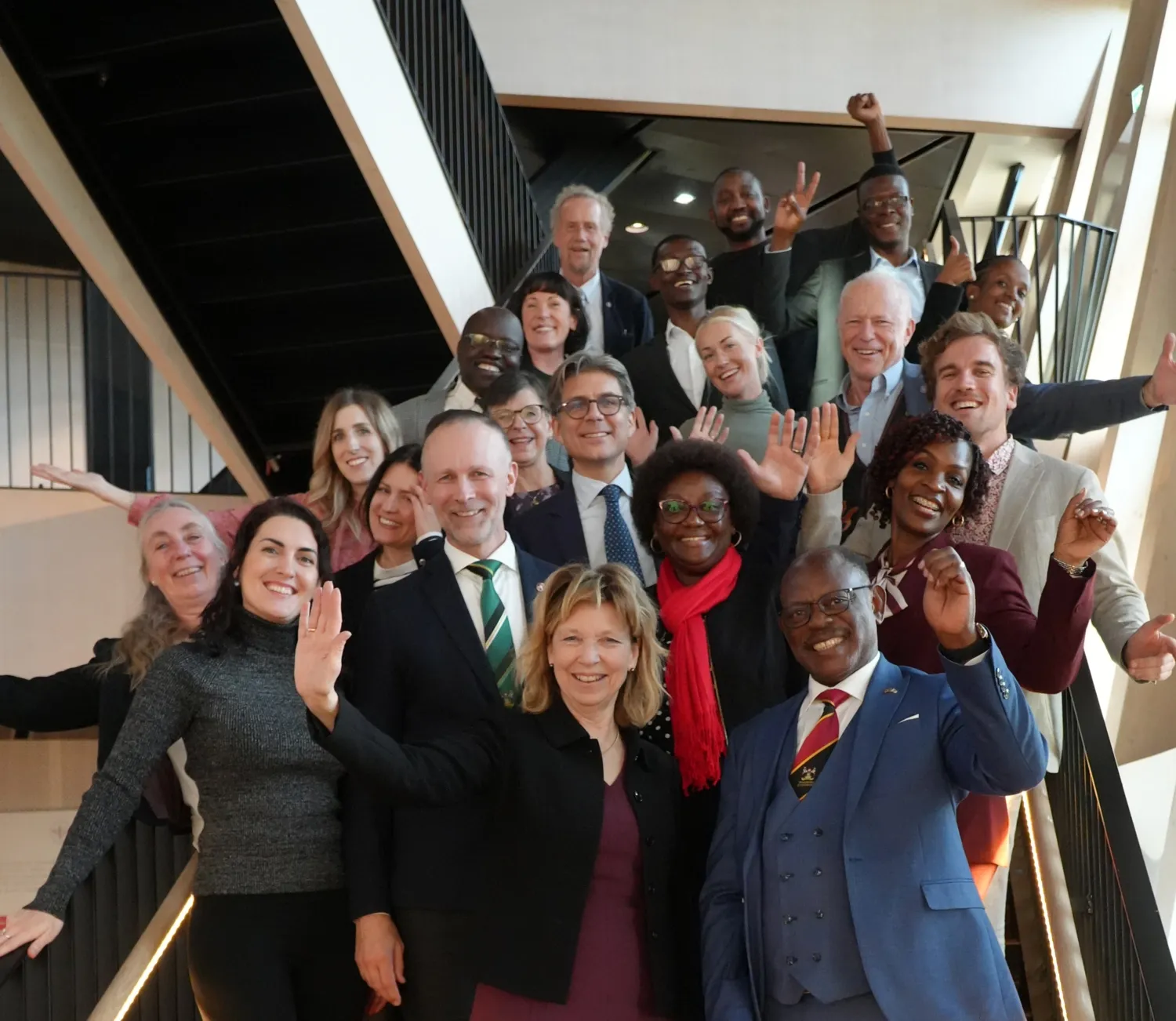Collaboration in Uganda
Makerere University in Kampala is Karolinska Institutet's main partner in Uganda. The collaboration is ranging from education to research activities and the establishment of the Centre of Excellence for Sustainable Health.

A strong partnership for mutual benefit
The collaboration started in 2000 and was initially focused on research collaboration. A Memorandum of Understanding as well as an agreement regarding doctoral education were signed in 2003. The cooperation expanded to include exchange of students and teachers within several educational programmes. With time, an active alumni network of hundreds of healthcare professionals and researchers has grown and reflects the success of the collaboration. To deepen the collaboration, the Centre of Excellence for Sustainable Health (CESH) was established in 2021.
The extension of the Memorandum of Understanding (2021–2025) and the renewal of the Collaboration Agreement for the Centre of Excellence (2021–2025) were signed 2025, for the period 2026–2030.
This is an important next step in the long-standing collaboration. Deepening our partnership will be a significant contribution to increase action to achieve the Sustainable Development Goals of the UN’s 2030 Agenda.
Collaboration on bachelor's and master’s level
More than 300 students and teachers at both universities have taken part in exchange mobility since 2001, through scholarships from the Swedish Linnaeus-Palme programme, financed by Sweden’s government agency for development cooperation Sida, KI travel grants, funding raised by alumni and the European Union’s Erasmus+ programme.
Study programmes that have, or have had, bilateral exchange of students and teacher are:
- Dentistry
- Medicine
- Midwifery
- Nursing
- Occupational Therapy and Physiotherapy (conducted at Paramedical school, affiliated to Makerere)
- Public Health Sciences
- Speech and Language Pathology
Additionally, students from KI can have supervision of their master’s degree project and dissertation from MakCHS. The agreement involves the Master’s programme in Global Health, Master’s programme in Public Health Sciences (tracks epidemiology, and health economics, policy and management) and Master’s programme in Health Informatics at Karolinska Institutet.
For current agreements on student exchange and more information search the map where all agreements can be found.
Collaboration on doctoral education
Makerere University and Karolinska Institutet (KI) have jointly run a doctoral training programme since 2003, supported by Sida’s Research Training Partnership Programme (2001–2022). The programme featured double registration, joint supervision, and examination, involving over 40 PhD graduates and 500+ peer-reviewed publications. The final phase, extended to May 2023, focused on locally admitted PhD students at Makerere University, supervised by Ugandan faculty with support from Swedish counterparts. The collaboration has strengthened research capacity in both countries and influenced health policy and practice in Uganda.
Apply for doctoral courses at KI
KI has established a number of formal collaborative agreements with universities, research institutions and networks that allow doctoral students to apply for doctoral courses at KI on the same conditions as doctoral students admitted to doctoral education at KI. The collaboration with Makerere University is one of the these.
Research collaboration
Over the last 20 years, KI and Makerere have collaborated closely in research areas such as HIV, sexual and reproductive health, infant care, malaria, tuberculosis, global health, cardiovascular disease, type 2 diabetes, and mental health.
